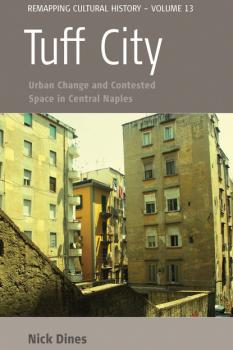Remapping Cultural History
Скачать книги из серии Remapping Cultural HistoryNarratives in Motion
Interwar Portugal was in many ways a microcosm of Europe’s encounter with modernity: reshaped by industrialization, urban growth, and the antagonism between liberalism and authoritarianism, it also witnessed new forms of media and mass culture that transformed daily life. This fascinating study of newspapers in 1920s Portugal explores how the new “modernist reportage” embodied the spirit of the era while mediating some of its most spectacular episodes, from political upheavals to lurid crimes of passion. In the process, Luís Trindade illuminates the twofold nature of that journalism—both historical account and material object, it epitomized a distinctly modern entanglement of narrative and event.
Fetishes and Monuments
One hundred years ago in Brazil the rituals of Candomblé were feared as sorcery and persecuted as crime. Its cult objects were fearsome fetishes. Nowadays, they are Afro-Brazilian cultural works of art, objects of museum display and public monuments. Focusing on the particular histories of objects, images, spaces and persons who embodied it, this book portrays the historical journey from weapons of sorcery looted by the police, to hidden living stones, to public works of art attacked by religious fanatics that see them as images of the Devil, former sorcerers who have become artists, writers, and philosophers. Addressing this history as a journey of objectification and appropriation, the author offers a fresh, unconventional, and illuminating look at questions of syncretism, hybridity and cultural resistance in Brazil and in the Black Atlantic in general.
Tuff City
During the 1990s, Naples’ left-wing administration sought to tackle the city’s infamous reputation of being poor, crime-ridden, chaotic and dirty by reclaiming the city’s cultural and architectural heritage. This book examines the conflicts surrounding the reimaging and reordering of the city’s historic centre through detailed case studies of two piazzas and a centro sociale, focusing on a series of issues that include heritage, decorum, security, pedestrianization, tourism, immigration and new forms of urban protest. This monograph is the first in-depth study of the complex transformations of one of Europe’s most fascinating and misunderstood cities. It represents a new critical approach to the questions of public space, citizenship and urban regeneration as well as a broader methodological critique of how we write about contemporary cities.
Rethinking the Informal City
Latin American cities have always been characterized by a strong tension between what is vaguely described as their formal and informal dimensions. However, the terms formal and informal refer not only to the physical aspect of cities but also to their entire socio-political fabric. Informal cities and settlements exceed the structures of order, control and homogeneity that one expects to find in a formal city; therefore the contributors to this volume – from such disciplines as architecture, urban planning, anthropology, urban design, cultural and urban studies and sociology – focus on alternative methods of analysis in order to study the phenomenon of urban informality. This book provides a thorough review of the work that is currently being carried out by scholars, practitioners and governmental institutions, in and outside Latin America, on the question of informal cities.
Border Interrogations
Under the current cartographies of globalism, where frontiers mutate, vacillate, and mark the contiguity of discourse, questioning the Spanish border seems a particularly urgent task. The volume engages a wide spectrum of ambivalent regions—subjects that currently are, or have been seen in the past, as spaces of negotiation and contestation. However, they converge in their perception of the “Spanish” nation-space as a historical and ideological construct that is perpetually going through transformations and reformations. This volume advocates the position that intellectual responsibility must lead us to engage openly in the issues underlying current social and political tensions.









